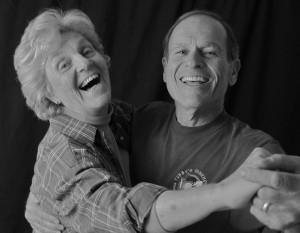Today SevenPonds talks with Mike Turbow, who has 40 years of experience as a practicing oncologist and more than 25 years of experience as a hospice medical director at Stanford University. Although he no longer practices medicine, Mike is an active volunteer with the nonprofit group Compassion and Choices, which is dedicated to helping individuals find a way to have the best death possible.
Kimberly: In one of your own talks, you mentioned that “some things should not be fixed”, Can you explain this belief?

Credit: https://www.compassionandchoices.org
Mike: I started practicing oncology in the mid-70’s as a medical oncologist, when there was little treatment for most cancers. Basically, my role as a medical oncologist was to help people as they die and to be with them as they die. Shortly after I started practice in 1974, I became active in the hospice community. I was a part-time medical director of a hospice for 25+ years. What I learned as an oncologist was that some things can’t be fixed because we don’t have effective treatment. Then as a medical director at a hospice, I learned that some things shouldn’t be fixed.
This belief has nothing to do with Compassionate Choices—its my own personal philosophy. People with metastatic cancer may have kidney failure, or somebody who has cancer of the bone will be in significant pain because they have high calcium eating away at the bone. The calcium can be treated to bring things back to normal, but why? Those are just two examples when it may not be appropriate to treat the complications of cancer or another illness that a person has. It has to do with quality of life, and people need to make those decisions.
What I learned as an oncologist was that some things can’t be fixed because we don’t have effective treatment.
Besides my professional experience, two other aspects have helped me form this opinion. The first happened two and a half years ago, when my 36 year old son died. This obviously was a struggle for both my wife and me. I think much less for me than her, just because I’ve had a lot more experience dealing with death, but grief is something that we all have to deal with at some point in time.
The other more difficult situation that I’ve dealt with was the death of my mother, who had dementia for 15+ years. Being demented is one of most people’s greatest fears. You see people in nursing homes who can’t communicate, who are literally vegetables, and it’s a real dilemma for how to deal with it.
I’ve had a lot more experience dealing with death, but grief is something that we all have to deal with at some point in time.
It was then that I had a discussion with my wife where I told her that If I am not able to feed myself, then she should not give me anything to eat or drink. On the other hand, if somebody doesn’t feed me, then it can be reported to the authorities as elder abuse. It’s a real dilemma, and that’s the reason that I tell people at my talks that you need to talk with your family about these issues. You need to let them know your decision. You can have all the forms written, notarized, and signed, but people have to buy in to what you want.
Kimberly: Do you have any advice about how to open up a conversation with your loved ones about your death preferences? When is the best time to start thinking about this talk?

Credit: www.efuneral.com
Mike: The time to do it is now. When I had that conversation with my kids, we went and changed our estate plan. It was then that I talked about not wanting to be fed if I was demented. I actually started this conversation two or three years ago at a memorial service, when my wife and I talked about memorial services several times afterwards and she said that she wouldn’t be able to do that. So I approached the subject with my son to see if he would be able to do that, and I also talked with a couple of close friends who agreed to literally and figuratively hold their hands for the process.
It’s essential that you let your loved ones know what you want and that they all can agree. I can’t remember the number of times when I would see somebody at a hospital, and one of the children would come in and say “No, we need to do this,” and in this case, it doesn’t matter how much paperwork has been signed, none of it means a thing if there is discord amongst the family.
Kimberly: Is it painful for a patient when you withhold food and water?
Mike: Actually, it’s not. You are still able to suck on things to keep your mouth moist, etc. People who I’ve talked with who have done this are already frail anyways. The whole process can take several months to happen, but for someone who is frail, whether they have metastatic cancer, some other debilitating illness, or even advanced dementia, it’s only going to take three or four weeks. Most of the times they are not uncomfortable, especially for someone who has dementia, because they are not aware of it. But people with illnesses like metastatic cancer, who are very clear about it, want to be in control of their own destiny. That gives them a great deal of support. And it’s not pain, its discomfort.
Kimberly: Can you tell us about the ‘dementia provision’ that you recommended with Compassion and Choices?
Mike: Basically, if you are unconscious or demented, you can say that “I would like my wish regarding specific life-sustaining treatment as follows if I am in a certain condition.” One can write in their own handwriting exactly what they want. I’ve gone ahead and changed mine recently so that if I am demented, even if I am able to feed myself, I do not want to be given food or water.
It’s essential that you let your loved one’s know what you want and that they all can agree.
This reproduces a great dilemma because 1) an institution may not allow that, because it is considered elder abuse, and 2) everybody in my family has to agree. Hopefully my wife would do it. She is getting used to the idea now, but when push comes to shove, it is going to be tough.
Kimberly: Is there a rule of thumb for how long someone should wait before implementing a dementia provision?

Credit: Wikipedia
Mike: In terms of the provision, dementia is really a catchall term that refers to the loss of cognitive function. In my own opinion, I have very strong feelings about this and I have been very definite with my family.
The story that I like to tell is that a few years ago when I was practicing, I was treating a woman who had breast cancer that had gone to the bone, and she became paralyzed. At the time that she had first come home, the treatment she was on stopped working. At this point I told her “life is not what you had envisioned, would you like us to stop continuing treatment?” and her response was “as long as I can smile once a day, life is worth living Dr. Turbow,” and then one year after that conversation, she came back to me and said “I’m not smiling anymore.” So each of us has our own interpretation of what quality of life is.
Kimberly: What kinds of change do you think will need to happen in order to give people more power to take control of their own deaths?
Mike: I think we are getting there. The hospice movement that began in the mid 70’s is a very strong movement, and there are places, as in Washington, Oregon, where laws are being passed to allow physicians to perform an assisted death, but the problem is that none of these provisions count as a treatment for dementia. The thing that I fear the most is that this is not covered in those situations. And you can’t pass a law to cover that. Each person has their own philosophy and perspective about what this means to them.
Each of us has our own interpretation of what quality of life is.
Kimberly: Do you have any advice for anyone who is taking care of someone who has dementia?
Mike: Meet a support group. I can’t think of anything more awful, and you need a lot of support. It’s a thankless job. I know that in my family, we had a lot of resources, and we had caretakers in the house, but my Dad felt responsible for everything. It took him a long time to get used to the fact that he could go out and play golf and leave my mother at home. I remember I would fly back to give him and my sister and brother a break, and I would stay home with my mom while my brother would take my dad out to play golf.
Kimberly: What qualifies as a good death in your eyes?
Mike: I would say that a good death is when your family has some warning of what is going to happen. It doesn’t always happen, even with the best of hands, because there are some things that you can’t control. I would say that a good death is when someone is emotionally and physically comfortable at the end of life. We can only hope for what we want, and the last part of that death process usually is by measured days and weeks and not months and years.
Kimberly: Thank you for taking the time to speak with us!
Mike: Thank you!
Related SevenPonds Articles:
- How Do You Prepare for Dementia? An Interview with Stanley Terman (part 1)
- What’s the Link Between Wisdom & Alzheimer’s in Old Age? An Interview with Laura Anthony
- 10 Ways You Can Help a Loved One With Alzheimer’s Survive Hospitalization

 What is a Dementia Provision? An interview with Mike Turbow
What is a Dementia Provision? An interview with Mike Turbow


 First the Wealth Gap, Now the U.S. Has a Growing Health Gap
First the Wealth Gap, Now the U.S. Has a Growing Health Gap

 Our Annual Seven Holiday Gifts for Someone Who Is Grieving, 2024 Edition
Our Annual Seven Holiday Gifts for Someone Who Is Grieving, 2024 Edition














